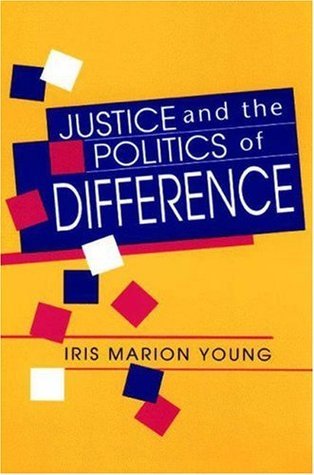What do you think?
Rate this book


286 pages, Paperback
First published August 17, 1990
I argue that instead of focusing on distribution, a conception of justice should begin with the concepts of domination and oppression.
I argue that the ideal of impartiality in moral theory expresses a logic of identity that seeks to reduce differences to unity.
In a political struggle where oppressed groups insist on the positive value of their specific culture and experience, it becomes increasingly difficult for dominant groups to parade their norms as neutral and universal
His [Habermas's] model of language itself, moreover, relies heavily on a paradigm of discursive argumentation, deemphasizing the metaphorical, rhetorical, playful, embodied aspects of speech that are an important aspect of its communicative effect (see Young, 1987; cf. Keane, 1984, pp. 169-72).